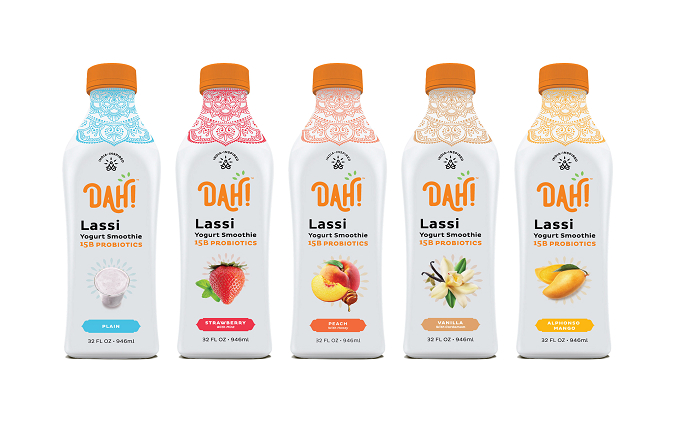Earth Overshoot Day Came Later in 2020
source edie newsroom
Earth Overshoot Day – the date at which humanity has used all available natural resources for the year – came almost a month later in 2020, largely as a result of Covid-19. But how can companies innovate and actuate to deliver lasting, holistic reductions in their environmental impact going forward?
That was the key point of discussion for edie’s most recent webinar, hosted in association with Centrica Business Solutions and featuring expert speakers from the Ellen MacArthur Foundation, DS Smith and Toast Ale.
——WATCH THE WEBINAR HERE——
The hour-long session, which is now available to watch on-demand, saw senior sustainability professionals and resource efficiency experts exploring how the relationship between business and nature can be transformed to deliver a low-carbon, resource-efficient “new normal”.
Earth Overshoot Day 2020 fell on 22 August – more than three weeks later than in 2019, when the earliest ever date was recorded. While this push back is welcome, it was ultimately caused by the economic slowdown resulting from Covid-19, rather than any transformation in approach from governments or businesses. Moreover, many organisations are concerned that the pandemic has caused some backtracking on previous circular economy commitments and trends, with single-use plastic increasing over health and hygiene concerns.
So, what steps should businesses and other organisations be taking to ensure that they are one-planet compatible as we emerge into a new normal? Here, we round up the key pieces of advice given by speakers during the webinar.
Don’t go it alone
Throughout the session, every speaker emphasised the importance of collaboration and partnerships. Linear models of production and consumption require an array of participants across the value chain, from designers and extractors, to manufacturers and, finally, waste management firms. As such, circular models of production and consumption will also entail multiple moving parts, which must be coordinated to fully close the loop.
The Ellen Macarthur Foundation’s senior analyst Marilyn Martinez highlighted a number of successful partnerships in the fashion sector, including Stella McCartney’s work with US-based luxury consignment store the RealReal, the North Face’s repair service with The Renewal Workshop and various corporate partnerships with EcoNyl, which recycles discarded fishing nets into nylon. EcoNyl is now used by the likes of Burberry and Napapijri.
“It is sometimes very hard for single companies or organisations to do everything necessary to be fully circular,” Martinez summarised. “[Your approach to collaboration] depends on your aim and where you are placed within your ecosystem. You need to self-assess your strengths and weaknesses before assessing who can help you best, in terms of an SME or a start-up.”
“It helps to have a really strong central partnership with an organisation where you can connect with likeminded people, learn from others and share expertise,” DS Smith’s head of government, community affairs and sustainability Wouter van Tol added. “At the same time, it’s important to have partners… all the way along the value chain.”
Engage meaningfully with policymakers
Policymakers also play a key role in creating and reshaping systems of consumption. Incentives and fines can be designed to either support virgin materials or recycled content, for example, or can encourage consumers to purchase new or to repair their items. Businesses can also be mandated to improve their sourcing practices, use recycled content, or ensure recyclability and reusability.
As nations seek to finalise and deliver their Covid-19 recovery packages, policymakers will be consulting with businesses to ensure that their proposed plans have the desired economic impact. Many nations are also looking to deliver a ‘green’ recovery, placing the onus on businesses to co-develop packages which deliver benefits for people and planet as well as profits.
In the UK specifically, a string of consultations on the Resources and Waste Strategy are tabled for the coming months, while the Environmental Audit Committee is already undertaking an enquiry into a circular economy for electronics.
When asked to give their key policy wish, the speakers outlined the benefits of:
- Better collection and segregation infrastructure for mixed recycling (DS Smith)
- Better data collection and reporting on waste streams, along with improved education (Toast Ale)
- Mandates for currently voluntary schemes on energy reporting and efficiency improvements (Centrica Business Solutions)
- Incentives for rental and resale businesses (Ellen MacArthur Foundation)
Redefine ‘waste’
Addressing the over-exploitation of natural resources is not just a moral imperative for businesses – it comes with potential financial benefits. Around $80-$120bn of value is lost annually through packaging that is landfilled, littered or burned. The figure stands at $57bn for e-waste. In the UK alone, £30bn of clothing remains unused and £140m are binned annually.
By framing waste as an opportunity not just to re-capture some of this material value but to accelerate innovation and enter new, rapidly-expanding markets, businesses can make the circular economy a board-level priority, the speakers concluded.
Martinez spoke of how resale marketplace ThredUp has experienced a 20% increase in transactions over the past four months, as lockdown prompted wardrobe clear-outs and gave consumers more time to consider the environmental impact of their fashion habits. Fashion retailers selling new items have, in contrast, seen sales fall by 25% within the same period.
Eslewhere, Toast Ale’s substitution of virgin grains for surplus bread in the brewing process was once challenging to market but has now been picked up by Brewdog. And DS Smith’s moves away from plastics and to increase paper recycling have increased demands for its services from businesses.
Read Also: Coca-Cola Introduces Recyclable Paperboard Packaging – F & B
Avoid greenwashing
Many brands are advertising products which have recycled content, or reusable packaging, or simply calling their products and models “circular” or setting “100% circularity” targets. But, according to think tank Circle Economy, less than 9% of the 100 billion tonnes of materials extracted in 2019 were recycled or reused.
As such, and with information about business’ environmental and social efforts (or lack thereof) now available widely through social media and digital news, consumers are growing confused and sceptical about business claims. A recent survey by Essity found that 26% of UK consumers think that corporations are ‘attempting to bury’ concerns about sustainability.
This reputational risk is only likely to grow and businesses will soon face larger physical or transition risks if they do not act now, according to Ziane. Toast Ale has notably achieved B-Corp status and, like all firms with this certification, must regularly provide updates on its work to deliver positive environmental and social outcomes.
“Greenwashing is a short-term way of gaining custom and positive impact, but, in the longer-term, a lot of fossil fuel assets are going to be stranded and businesses are going to have to take real action, whether they want to or not,” Ziane said. “A lot of greenwashing is being called out by the public now… businesses should be looking to take action and maybe seek third-party certification for those actions.”
Martinez agreed, discussing how much business action to date have not changed linear systems to closed-loop ones, but simply slightly decreased the amount of virgin materials passing through them.
Acknowledge that energy is also part of one-planet compatibility
Discussions to mark Earth Overshoot Day often focus solely on resources, but with the world on track for more than 3C of warming this century, businesses must be mindful that 55% of annual global emissions can be attributed to energy use, according to the Ellen MacArthur Foundation.
The good news is that a growing cohort of businesses are setting 100% renewable energy targets or are increasing their ambitions around energy efficiency. Now, Centrica Business Solutions’ head of consultative services Tim Wynn-Jones said, an increasing number of businesses are seeking full traceability of the renewable energy they source.
“Increasingly, people want to source energy from new-build generation assets, including solar or wind farms that haven’t yet been constructed,” he explained. “That works brilliantly for the renewable energy developer community because they need to know that they can sell the power from those assets in order to make them financeable to investors.”
Aside from ensuring additionality and credibility when sourcing clean energy, Wynn-Jones explained, businesses should fully consider their role in the energy transition, which will result not only in more renewables and greater efficiency but in increasingly decentralised and digitised systems. They should also help suppliers to decarbonise their energy, given that many organisations’ Scope 3 (indirect) emissions are higher than those attributable to their operations and direct energy use.








